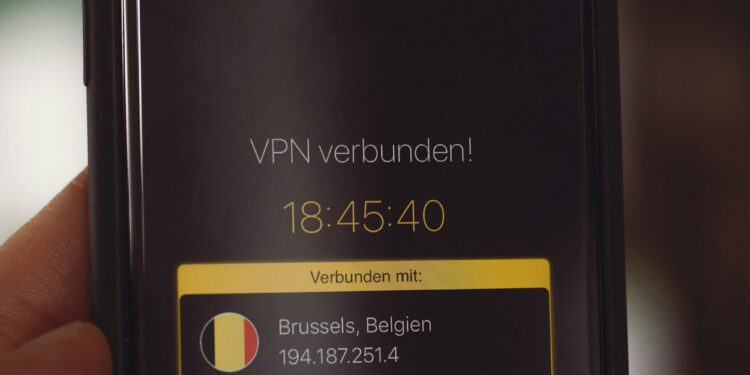Let’s face it, the internet is a double agent. It connects us with loved ones across the globe, fuels our #WFH dreams, and keeps us entertained with endless cat videos (guilty as charged). But lurking beneath the surface is a constant threat to our online privacy. From targeted advertising that feels eerily personal to data breaches that expose our information, the fight for digital anonymity is more important than ever.
Enter Virtual Private Networks (VPNs). These security superheroes encrypt your internet traffic and mask your IP address, essentially creating a private tunnel for your online activity. But with a saturated market overflowing with VPN providers, choosing the right one can feel like deciphering a crypto wallet password (hopefully you use a strong one!).
Fear not, fellow privacy warriors! This in-depth review dives into five top contenders in the 2024 VPN battleground: ExpressVPN, NordVPN, Surfshark, ProtonVPN, and Private Internet Access (PIA). We’ll dissect their security features, connection speeds (because who wants laggy video calls?), and subscription plans (because budgeting is key), helping you find the perfect VPN to shield your online life.
Fort Knox Security: Encryption Protocols and More
A VPN’s core strength lies in its ability to be your digital bodyguard. Let’s see how these providers stack up when it comes to encryption protocols, kill switches, and logging policies:
- Encryption Protocols: All the VPNs reviewed here utilize the industry-standard AES 256-bit encryption, considered uncrackable by even the most sophisticated hackers (think Fort Knox for your data!). This robust encryption scrambles your data, making it unintelligible to anyone snooping on your internet connection.
- Kill Switch: This vital feature acts as a safety net. If the VPN connection drops unexpectedly, the kill switch automatically cuts your internet access, preventing your unencrypted data from leaking out. Imagine it as an emergency parachute for your online privacy – essential!
- Logging Policies: A strict no-logs policy is paramount for true privacy protection. This ensures the VPN provider doesn’t record your online activities, browsing history, or connection logs. Here’s where the providers differ:
- ExpressVPN: They boast a well-established no-logs policy, independently audited by third-party security firms to verify their claims. This transparency and commitment to user trust are a major plus.
- NordVPN: NordVPN has also undergone independent audits and claims a strict no-logs policy. However, a past data breach in 2018 raised concerns. Although NordVPN maintains no user data was compromised, the incident serves as a reminder of potential vulnerabilities.
- Surfshark: Surfshark emphasizes their no-logs policy and operates under the jurisdiction of the British Virgin Islands, known for its strong privacy laws and no mandatory data retention.
- ProtonVPN: This Switzerland-based provider is a champion for online privacy. ProtonVPN is open-source, meaning their code is publicly available for independent scrutiny by security experts. This enhances transparency and allows users to verify the company’s security practices. They maintain a strict no-logs policy and even offer a “Secure Core” feature that routes your traffic through multiple servers for enhanced anonymity.
- PIA: Based in the United States, PIA has a no-logs policy but with the caveat of keeping anonymized usage statistics. However, they assure users that these statistics don’t contain any personally identifiable information.
- ExpressVPN: They boast a well-established no-logs policy, independently audited by third-party security firms to verify their claims. This transparency and commitment to user trust are a major plus.
Beyond the Basics: Advanced Features for the Tech-Savvy User
While encryption and kill switches are crucial, some providers offer additional security features that tech-savvy users might appreciate:
- Leak Protection: All five providers reviewed offer leak protection, ensuring your IP address and DNS requests don’t leak outside the VPN tunnel, potentially revealing your location.
- MultiHop: This advanced feature routes your connection through multiple VPN servers, creating an additional layer of anonymity and potentially making it harder for someone to track your online activity. Think of it as a double layer of encryption for extra security.
- Obfuscated Servers: Certain providers like PIA offer obfuscated servers, which disguise VPN traffic as regular internet traffic. This can be particularly useful in countries with restrictions on VPN use.
- Warrant Canary: ProtonVPN takes a unique approach by utilizing a warrant canary. This transparency tool publicly states whether they have received any government warrants or legal orders to access user data. The absence of an update on the warrant canary can be seen as a positive sign for user privacy.
By understanding these features and evaluating your individual needs, you can choose a VPN that provides the security safeguards most important to you.
Need for Speed? Balancing Security and Performance
Let’s be honest, who wants a sluggish VPN that makes streaming










